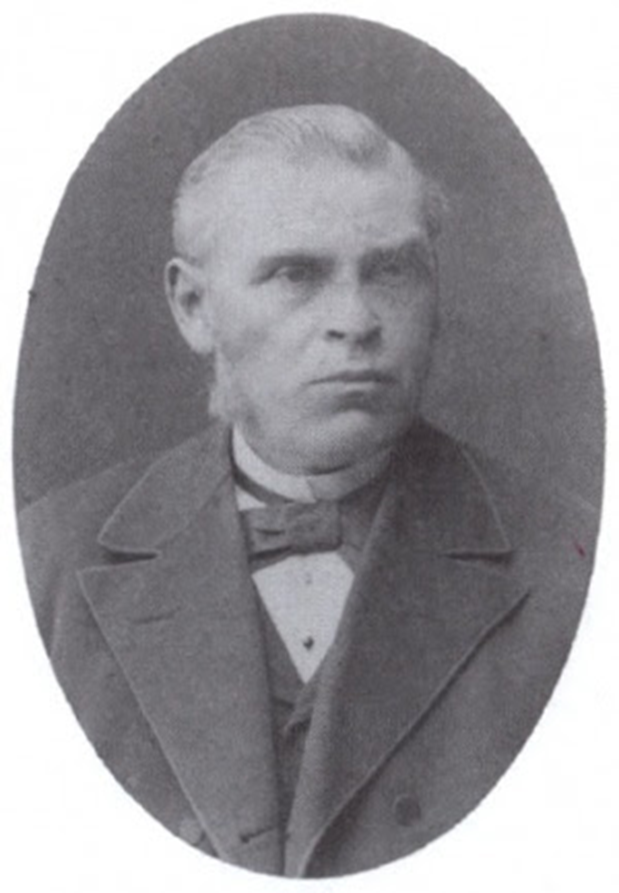Gottfried F. Alf
Do you really believe that the Gospel is “the power of God unto salvation, to everyone who believes…” (Romans 1:16)? God works in each individual heart in individual, often unexpected ways. In 1850, the town of Mentnowo, a German colony near Warsaw, Poland, had no minister. Lutheran ministers were few and covered very large areas. The once red-hot Lutheran faith had become a flicker of its former self and spiritual lethargy was the norm among both clergy and lay people.
In cases like that at Mentnowo, where there was no local minister, it was expected that a schoolteacher (who presumedly knew how to read) would lead Sunday worship and read a sermon. In Mentnowo, this task fell to nineteen-year-old Gottfried Alf.
Taking his task seriously, Gottfried began to study the Bible to better understand the sermons he was reading. Reading intently for over two years, he realized his own lost condition and understood that salvation came only by the work of Christ. In 1853, he committed his life to Christ.
Gottfried shared what he had learned with his students. Many of them came to faith, as well as many parents. Other parents resisted and complained to the over-extended pastor of the region. This pastor told him to hold no more Bible teaching and no more prayer meetings. When he refused to quit, they orchestrated his firing from his job and kicked him, his wife, and their young child from their home. Now without income, his father took the family in and allowed Gottfried to farm some of his land to provide for his family.
Convicted of the truth of the Gospel and with an insatiable desire to share, Gottfried began making trips around the region to preach. People were saved. Lives were changed. The status quo was disrupted. As a result of this, Alf was arrested and beaten by the Lutheran authorities. Realizing he no longer had a place in the church into which he was born, Gottfried became a Baptist – incurring the wrath of both the Lutherans, the local Russian Orthodox clergy, and his own father who threw him off his land. By 1866, the year overt persecution ceased, hostile authorities in the regions he visited had beaten and/or imprisoned him at least thirty times. In some cases, food was withheld, chains were put on deliberately tight, medical care was neglected. Other times he was exposed in chains to crowds who would heckle, jeer, and threaten. Despite these difficulties, Gottfried continued to preach and work. He founded many churches in Poland and in Ukraine.
A biographer records just one of his imprisonments with these words:
“Not far from Adamowo, although he was carrying a pass,
Alf was stopped by two of his enemies. They found, however, that Adamowo was
not listed in his pass and took him to the magistrate in Wiszkow…. Since he
carried tracts in his travel bag, he was labeled a sectarian and was thrown in
prison on May 13 for four days. For the first three days he was among criminals
and without food or drink; on the fourth day a German smith heard of him and
brought him food. He was then transported to Pultusk, where he was imprisoned
eight days. He was held here so long that his pass expired, which was further
cause for punishment. He was then ordered to Przasnysz, a particularly
torturous journey by foot since he was not feeling well. Fortunately, brethren
with a wagon came searching for him and carried him to Prasnisz, where he
remained imprisoned for four days until May 28.
The authorities then sent him to Chazecharow, where on the next day the
magistrate ordered him to pay ten rubles. Alf sent in the ten rubles, but that
did not settle the matter.… Alf was ordered to deliver the money personally
with a written declaration that he had not traveled with any evil intent and
would not spread a false faith but only the pure Christian religion…. [By] June
3, Alf had endured twenty-one days of suffering and approximately 1,300
kilometers [808 miles] of tiresome travel. After four weeks he arrived home….
His wife and most of the brethren had given him up as lost and dead.”
Gottfried Alf’s persistence and suffering paid off. By his death in 1898, many thousands of people had come to faith. Many of his converts later emigrated to the United States, establishing churches there.
Christian History e-mail: 28 Nov 2021
https://www.captivefaith.org/post-reformation/alf/

